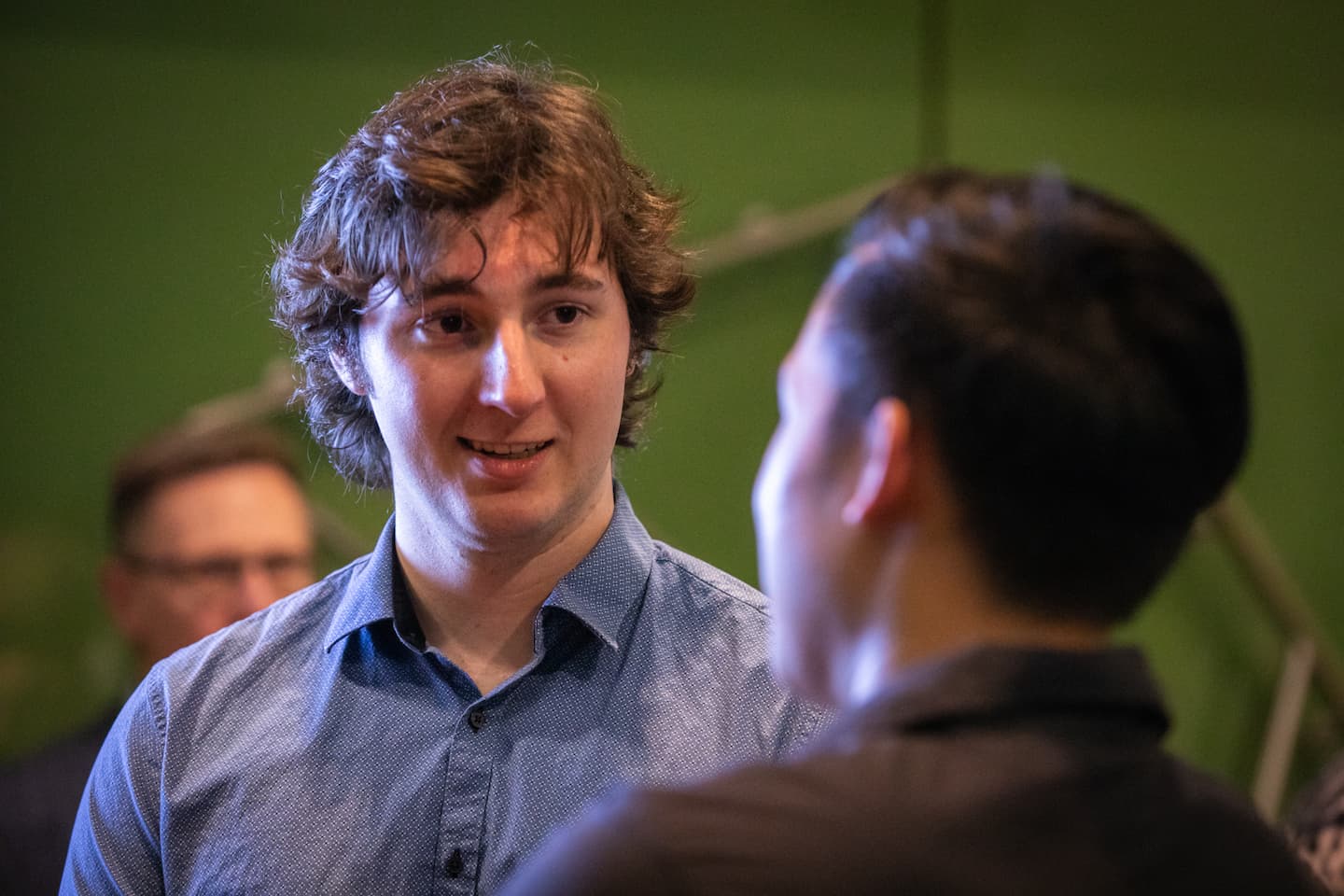The Sir William Tyree Engineering Scholarship is giving students more than vital financial support through tough economic times.
While many of his contemporaries took a well-earned holiday, Edward Mentiplay-Smith worked full-time through the summer after he completed high school. He had achieved his goal of enrolling to study engineering at RMIT and knew he had to save as much money as he could for the move to Melbourne from his home in Benalla, in country Victoria.
“I was stressing out about how I would be able to manage the study and support myself at the same time,” Edward remembered.
Then he heard about the Sir William Tyree Engineering Scholarship and was thrilled to win one of three scholarships on offer. The scholarship covers Edward’s on-campus living expenses and allows him to work part-time, leaving plenty of time to excel in his studies.

The Sir William Tyree scholarship has allowed me to devote myself to my studies and I have enjoyed every minute
- Edward, now in the third year of his undergraduate degree.
The value of the scholarship far exceeds its generous monetary value. It has also opened a world of opportunities and connections to help Edward make the most of his time at RMIT and to launch him on a rewarding career path in engineering.
“A lot of opportunities have come my way through the scholarship,” he said.
“The mentor program is invaluable. It’s just incredible to be able to talk to an experienced engineer and see what’s happening in the world of engineering and other fields.”
Edward is looking at internships over the summer break and feels well-placed to obtain an interesting position in his chosen field – aerospace.
He is also a valued member of RMIT’s Uncrewed Aircraft Systems Research Team. A world-leader in its field, the multidisciplinary team is researching drone technology and refining RMIT’s award-winning Black Kite drone, designed for use in maritime conditions.
“What I love about aerospace engineering is the interesting complexity; it has connections to so many other fields of study and it can be applied to different problems and work situations. My RMIT qualification will be the perfect springboard into the jobs that I would find interesting.”
Sir William Tyree was an Australian engineer, entrepreneur and manufacturing titan whose skill, ambition and foresight revolutionised the power industry. The Sir William Tyree Foundation, a major Australian philanthropic organisation since the 1970s, is now chaired by Sir William’s daughter Robyn Fennell (nee Tyree).
“My father would have thoroughly enjoyed meeting and talking to Edward about his vision, ambitions and discussing the future of engineering with such a bright young student coming through university,” said Ms Fennell.
“The Sir William Tyree Foundation is thrilled to see our scholarship students flourishing at RMIT and we look forward to supporting three new engineering students from 2024.”
The Sir William Tyree Engineering Scholarship awards three RMIT scholarships each year, providing $16,000 per year for the four years of the engineering degree. It is open to students enrolling in first year of the Bachelor of Engineering who face disadvantage by having to move to Melbourne from a rural area, or through low income, poor health, disability or personal difficulty.
It welcomes applications from students from under-represented backgrounds such as First Nations communities, recent immigrants, refugees and those who completed high school at a School Network Access Program school.